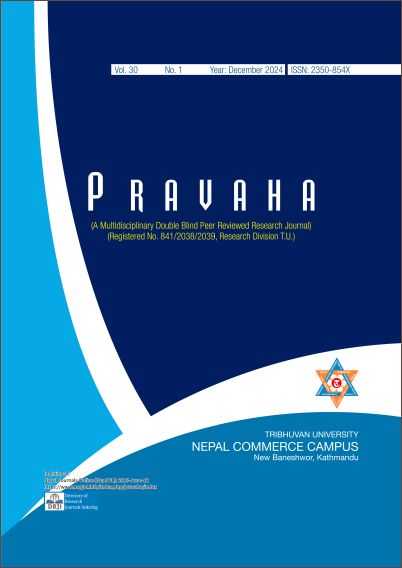Past Behavior and Financial Literacy on Investment Decision Making of Individual Investors
DOI:
https://doi.org/10.3126/pravaha.v30i1.76901Keywords:
Past Behavior, Financial Literacy, Investment Decision, Individuals Investor, Mediating Role of Attitude, Perceived BehaviorAbstract
Investment decision-making is a critical aspect of financial management, influenced by cognitive biases, financial literacy, and past behavior. This study examines the impact of past behavior and financial literacy on investment decision-making among Nepalese investors, incorporating the Theory of Planned Behavior (TPB). Using SmartPLS 4, the study analyzes 426 respondents with at least three years of investment experience. The findings reveal that financial literacy significantly influences attitude and investment decisions, while past behavior impacts investment choices. However, perceived behavioral control does not significantly affect investment intention. The measurement model meets reliability and validity criteria, with R² values indicating weak to moderate explanatory power. The effect size (f²) ranges from small to medium, with one strong relationship (f² = 0.506). Q²predict values suggest attitude has higher predictive relevance than other variables. The study highlights the importance of financial education in enhancing investment participation and mitigating biases. Findings provide valuable insights for policymakers, financial institutions, and investors to promote informed financial decision-making. Future research should explore additional psychological and market-related factors influencing investment behavior in emerging economies like Nepal.
Downloads
Downloads
Published
How to Cite
Issue
Section
License
© Nepal Commerce Campus, TU
Authors are required to transfer their copyright to the Nepal Commerce Campus, TU.




